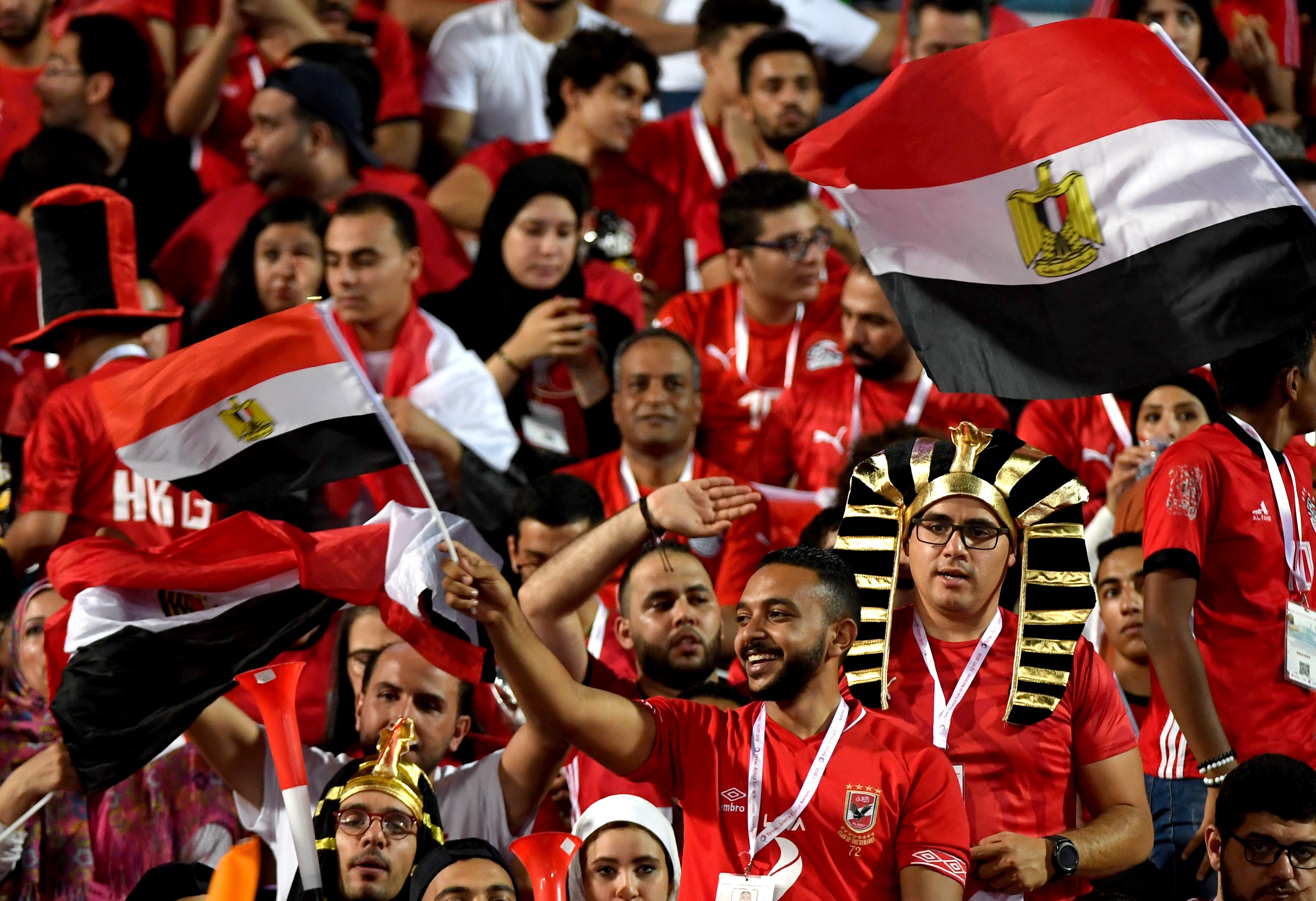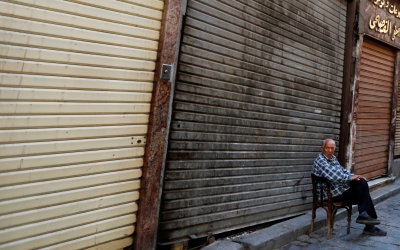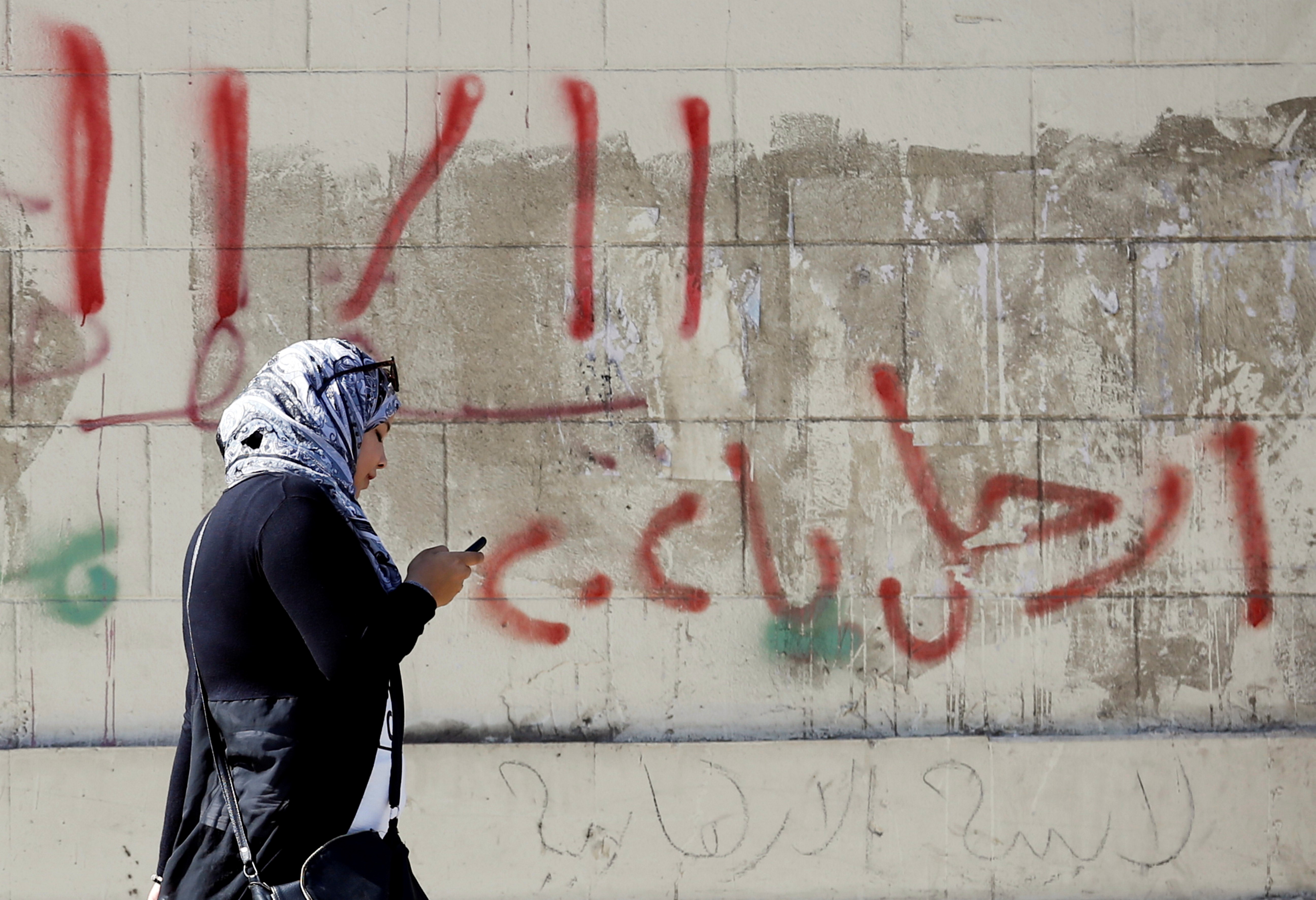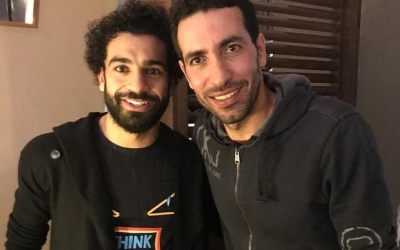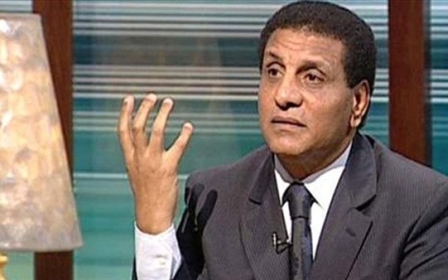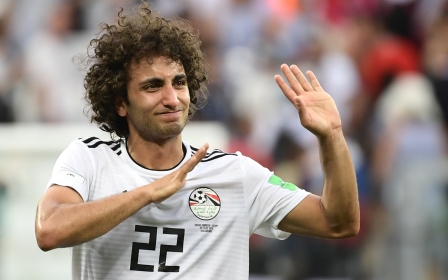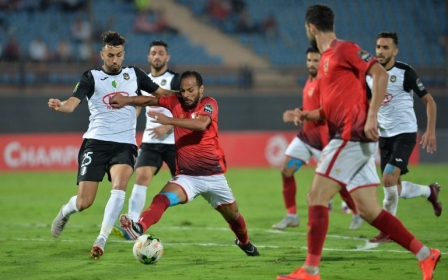The uncomfortable truths about Egypt’s Africa Cup defeat
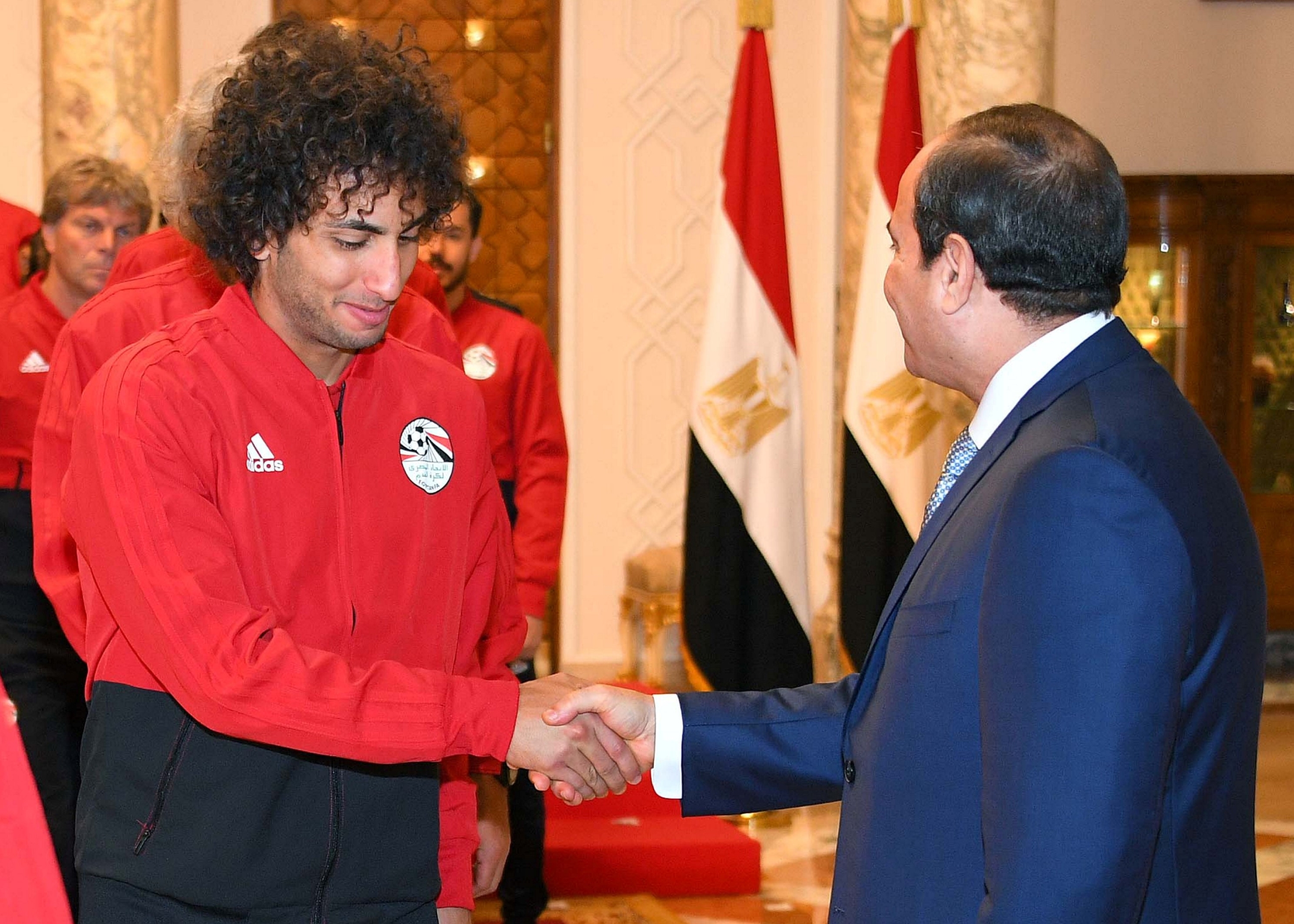
With the clock approaching quarter to eleven on Saturday night inside the Cairo International Stadium, South Africa’s Thembinkosi Lorch runs through and places the ball past Egypt’s goalkeeper and into the goal.
Inside the stadium, the crowd, almost entirely Egypt fans, falls momentarily silent.
As the game draws to a close, there is a mix of emotions that would go on to be amplified both inside and outside of the stadium. There is disappointment, disbelief, shock, but also a degree of anger. This surprise defeat by a solitarily goal ends Egypt’s participation in the Africa Cup of Nations (AfCon) 2019 at the round of 16.
A different kind of defeat
On paper, compared to the Egyptian national team’s last participation at a major football tournament, the FIFA World Cup in Russia last summer, this is an improvement. In Russia, Egypt was one of the worst performing teams in the tournament - losing all three games, including a humiliating defeat against Saudi Arabia.
This time round, Egypt won three of their four games – and the only goal conceded in 360 minutes of play leads to their elimination.
In a country where football is inherently political and an arena where opinions can be more freely expressed, the post-match mood is telling
However, this does not feel like sporting misfortune or an unlucky turn of fate, which would have been more palatable. So why does this defeat feel so different?
It could be that there is a cumulative effect of two embarrassing tournament exits in the space of a year. Or that expectations were considerably higher given Egypt has historically performed well in this competition and had the advantage of playing at home.
Prior to this year’s AfCon, Egypt had never finished lower than third place when hosting the tournament, dating back to 1959, and won three of the five editions held in Egypt.
It’s also likely that the strength of feeling is a build-up of dissatisfaction with how the sport is run in Egypt. The latest failure feels like a moment to face up to the underlying reasons and enact real change.
In a country where football is inherently political and an arena where opinions can be more freely expressed, the post-match mood is telling.
A strategic opportunity
This tournament was meant to be a strategically important opportunity for the Egyptian government, both to promote an image of a safe and thriving nation, as well as enhance Egypt’s political standing in Africa. Success on the pitch could have plastered over some of the real-life concerns that persist for Egyptians, such as rising cost of living, limited employment opportunities, and persistent corruption.
The systemic failures of the football governing body and some of the issues around planning for the tournament mirror the politics of the current regime
Egypt jumped at the chance of hosting the AfCon 2019 after the original host country Cameroon was deemed to be unable to complete the required stadia construction in time.
The thinking was clearly that hosting the tournament would be a further boost to the country’s role as a major regional player, alongside Egypt’s President Abdel Fattah el-Sisi taking over the chair of the African Union.
Another objective was also to showcase Egypt as a tourist destination and revive the tourism industry’s fortunes after the downturn since 2011 which followed the uprising.
In the end, these plans backfired and failure on the pitch has only served to draw more attention to these problems which continue to plague the country. The systemic failures of the football governing body, the Egyptian Football Association (EFA), and some of the issues around planning for the tournament mirror the politics of the current regime.
A positive PR?
According to a World Bank report from April, 60 percent of Egypt’s population is either poor or vulnerable, with inequality rising and more measures needed to accelerate economic inclusion and absorb a growing labour force.
Meanwhile, substantial foreign investment and public funding is channelled towards large-scale vanity projects, from the $58bn new capital construction to the $3.3bn “Disneyland-style” theme park planned in the Matrouh Governorate.
The lessons from this ill-fated tournament is that success in Egypt comes despite the systems in place and not because of it
In the short to medium term, it is not clear how ordinary Egyptians will benefit from such projects, which continue to lose investors and suffer delays in delivery timescales. In a similar vein, the AfCon was perhaps intended as a positive PR move but the ticket prices were so prohibitively expensive that they were well above what the average Egyptian can afford.
In a country where per capita income is $200 a month, Egypt’s games were almost exclusively available to members of the upper middle classes, further highlighting the inequality that exists. The Egyptian government will hope that the near deserted stadiums for most of the games is not an omen for its new capital city.
Where has the money gone?
In this context, one might better understand that the EFA can be judged to have squandered and poorly invested its resources. In the lead-up to the FIFA World Cup last year, the EFA found itself embroiled in a destabilising image rights dispute with their star player, Mohamed Salah.
Despite not owning the rights to Salah’s image, they attempted to leverage it to generate funds from sponsors. The worst case of this was the infamous team aeroplane, where it’s worth noting that the primary sponsor emblazoned on the aircraft was the state-owned telecoms company, WE.
As well as the sponsorship funds raised from commercial deals, there is also a reported $8m contribution that the EFA received for the team’s participation at the FIFA World Cup. Egyptians might rightly question where that money has gone.
We know that some of the EFA’s income was used to parachute in a relatively expensive group of foreign coaching staff. Rather than investing in building the technical capacity of its own cadre of coaches, the EFA appointed the Mexican head coach Javier Aguirre and his Spanish assistant Tito Garcia Sanjuan.
Aguirre was reported to have been appointed on a contract worth $120,000 a month until the end of 2022, before it was terminated following Egypt’s exit from AfCon 2019.
There is also little sign of the $2.25m worth of funding from FIFA to be invested in a new sporting facility and complex to "ensure that all children in Egypt continue to dream about football and follow in the footsteps of their idol Mohamed Salah".
At this rate, none of this investment will yield any results – let alone a new Salah – before AfCon 2021 or the World Cup the following year. Investment in grassroots football or even in the Egyptian Premier League is lacking and the finger of blame should be pointed at the EFA.
A dismal reality
Aside from questionable financial management and governance decisions, another negative social ill which the tournament, somewhat unexpectedly, drew attention to is sexual harassment. According to a 2017 survey by UN Women and Promundo, 60 percent of women in Egyptian had experienced sexual harassment, either verbal or physical, while a survey of men found that 64 percent engaged in some form of sexual harassment.
This dismal reality was inescapable with the handling of the Amr Warda situation. When the footballer was dismissed from the team after multiple women came forward and accused him of sending lewd messages, some of his teammates publicly supported him, and several senior players reportedly pressured the EFA into reversing the decision.
The repercussions of the AfCon exit, unlike the aftermath of the World Cup, were instant and not just on the coaching side.
As well as the removal of all the technical staff, including Aguirre, came the arguably long overdue resignation of the Egyptian Football Association president Hany Abo Rida, along with his vice-president. However, whether the repercussions will extend further to address the underlying concerns is questionable.
The lessons from this ill-fated tournament is that success in Egypt comes despite the systems in place and not because of it. While there may be fleeting moments of rare glory on the field, mostly personified by Salah’s continued success, the systemic failures form a significant barrier to rising above mediocrity.
For Egypt to fulfil its potential, both in football and more broadly, there needs to more accountability and better investment.
The views expressed in this article belong to the author and do not necessarily reflect the editorial policy of Middle East Eye.
Middle East Eye propose une couverture et une analyse indépendantes et incomparables du Moyen-Orient, de l’Afrique du Nord et d’autres régions du monde. Pour en savoir plus sur la reprise de ce contenu et les frais qui s’appliquent, veuillez remplir ce formulaire [en anglais]. Pour en savoir plus sur MEE, cliquez ici [en anglais].


